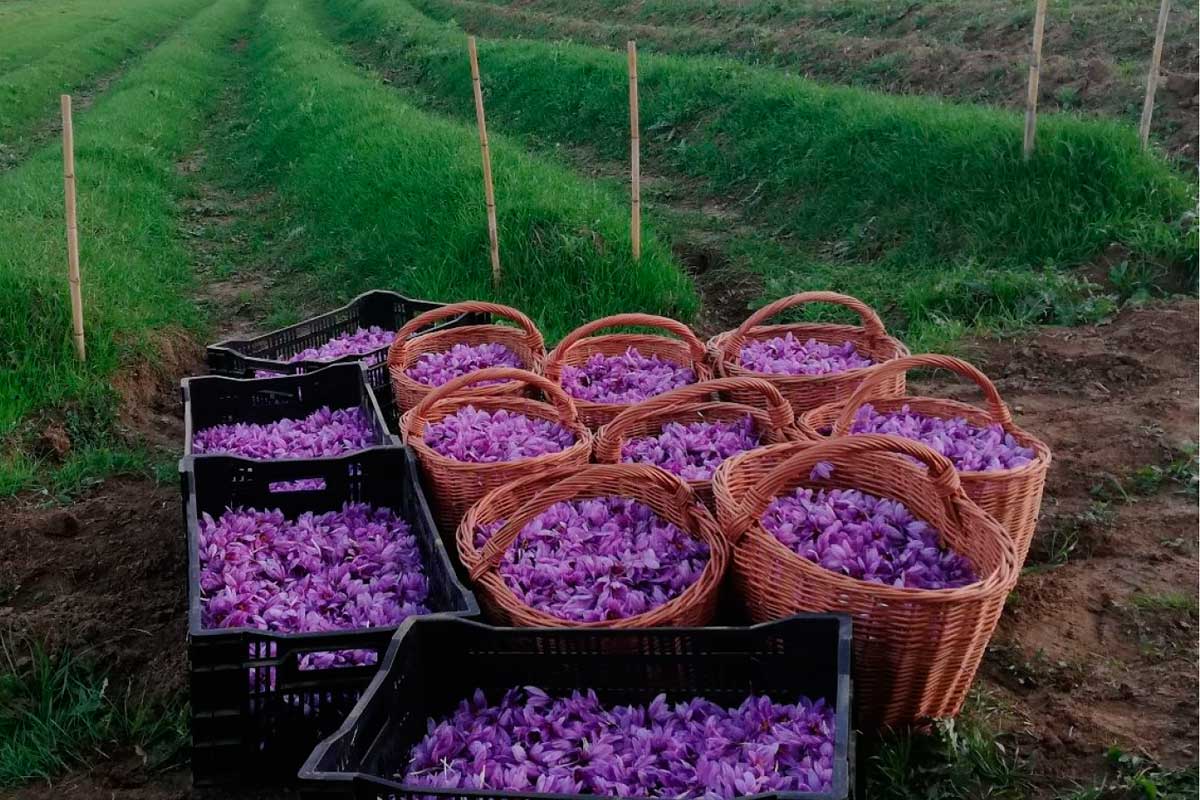Free Express International Delivery & Easy Returns
Free Express International Delivery & Easy Returns
The Economic Impact of Saffron Production in Different Regions

Saffron, often referred to as the “golden spice,” not only holds cultural and culinary significance but also plays a vital role in the economic prosperity of regions where it is cultivated. Let’s explore the economic impact of saffron production in different regions and the factors that contribute to its importance in local economies.
Saffron cultivation provides employment opportunities for local communities, particularly in rural areas where alternative sources of income may be limited. The entire process of saffron production, from planting and harvesting to processing and packaging, requires manual labor, creating jobs for farmers, laborers, and artisans. Additionally, saffron cultivation often involves seasonal labor, providing income during peak harvesting periods.
Saffron farming can be a lucrative venture for growers, as saffron commands a high price in global markets due to its rarity and unique qualities. The sale of saffron threads and related products generates significant income for farmers and agricultural cooperatives, contributing to household income and livelihoods. In regions where saffron is the primary cash crop, such as Iran, Kashmir, and Spain, saffron production plays a crucial role in poverty alleviation and economic development.
Saffron is a valuable export commodity, and regions known for high-quality saffron production benefit from export revenue and foreign exchange earnings. Exporting saffron threads to international markets allows saffron-producing countries to capitalize on their comparative advantage and leverage their reputation for producing premium-quality saffron. The export of saffron contributes to the balance of trade and supports economic growth and development.
Saffron cultivation has the potential to attract tourists and visitors to regions with a rich saffron heritage, such as Kashmir in India and La Mancha in Spain. Saffron festivals, agritourism initiatives, and cultural events celebrating saffron cultivation provide opportunities for local communities to showcase their traditions, cuisine, and craftsmanship. Tourism-related activities associated with saffron production, such as farm tours, cooking classes, and saffron-themed souvenirs, generate additional income and support small businesses in the region.
The economic benefits of saffron production extend beyond the agricultural sector to infrastructure development and investment in rural communities. Government support for saffron cultivation may include funding for irrigation projects, road construction, and market infrastructure to improve access to markets and facilitate trade. Investments in research and development, technology transfer, and agricultural extension services also enhance the productivity and competitiveness of saffron farming operations.
The economic impact of saffron production in different regions is multifaceted and significant, encompassing employment generation, income generation, export revenue, tourism promotion, and infrastructure development. Saffron cultivation not only contributes to economic growth and prosperity but also preserves cultural heritage, promotes sustainable agriculture, and fosters community development. By harnessing the potential of saffron as a high-value crop, regions can unlock new opportunities for inclusive and sustainable economic development, ensuring a brighter future for generations to come.
Please feel free to contact us for any inquiries related to Saffron.
Copyright © 2024 Zaflore.